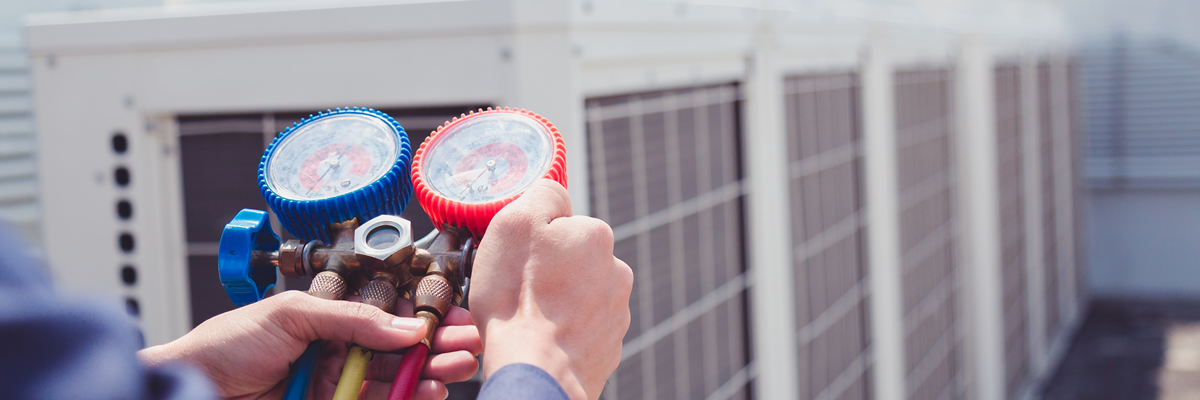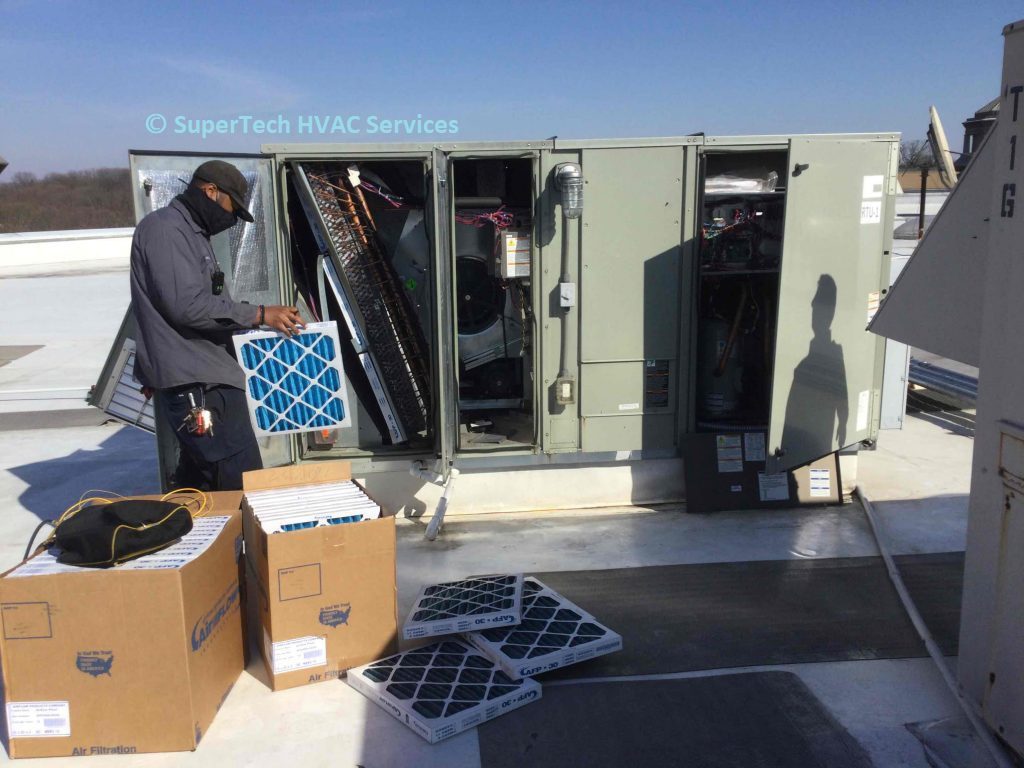Everything You Should Know Before Buying ductless mini splits
Choosing In Between a Heatpump and Heater: Trick Factors To Consider for Your HVAC Demands
When examining heating options for heating and cooling needs, the choice between a warmth pump and a heater can be complicated. Each system offers distinct advantages customized to particular environments and energy effectiveness goals. Recognizing these differences is essential for making an informed selection. Secret elements such as installment prices and environmental influence further make complex the selection procedure. Which alternative really aligns with one's convenience and sustainability preferences? The complying with sections will discover these considerations in information.
Comprehending Warmth Pumps: Exactly How They Function and Their Benefits
While lots of property owners consider different home heating options, comprehending how warmth pumps function and their benefits can greatly affect their choice. Heatpump operate by moving warmth rather than producing it. In the winter, they draw out warmth from the outside air or ground and transfer it inside, while in the summer, they reverse this process, cooling down the home by expelling warm outside. This double capability makes them versatile for year-round environment control.One of the primary benefits of heatpump is their power performance. They use considerably less electrical energy contrasted to standard heating unit, possibly causing reduced utility bills (ductless mini splits). Additionally, heatpump have a smaller sized carbon impact, making them an eco pleasant option. They additionally need much less upkeep than standard systems, adding to lasting cost savings. Generally, comprehending the technicians and advantages of heatpump can aid homeowners make informed choices regarding their home heating and cooling needs
Discovering Heaters: Types, Procedure, and Benefits
Heaters can be found in numerous kinds, consisting of gas, electric, and oil versions, each with unique operational systems. Comprehending these differences is necessary, as they influence effectiveness and heating performance. In addition, heating systems provide various benefits, such as regular warm output and integrity in cooler climates.
Kinds of Heating systems
Heater can differ substantially in style and operation, with heaters being a prominent choice amongst property owners. There are several sorts of furnaces, each making use of different gas resources and innovations. Gas furnaces prevail, leveraging natural gas to generate heat successfully. Electric heating systems, on the various other hand, utilize electrical resistance to generate heat, usually favored for their simple setup. Oil heaters, while less usual, work in locations with restricted gas accessibility (furnace replacement). Additionally, condensing heating systems take full advantage of energy effectiveness by reusing and recording exhaust gases. Each kind operates with a system of warmth exchangers and ductwork to disperse cozy air throughout a home. Understanding the distinctions in between these furnace types is crucial for informed a/c choices
Advantages of Furnaces
For house owners looking for dependable warmth during cool months, the benefits of furnaces are significant. Heating systems give consistent heating, guaranteeing also temperature levels throughout the home. They are specifically effective in extreme cold, frequently outmatching heatpump in cold conditions. Different types, including gas, electric, and oil heating systems, use adaptability to fulfill varied demands and preferences.Furnaces additionally often tend to have reduced preliminary setup expenses compared to heatpump, making them a much more available choice for numerous. Their robust design adds to a much longer life-span, with lots of systems lasting over 15 years with appropriate maintenance. Furthermore, modern furnaces are frequently geared up with advanced technology for boosted performance, which can cause minimized energy costs. On the whole, heating systems stay a reliable choice for reliable home heating.

Energy Performance: Contrasting Heat Pumps and Furnaces
When comparing power performance between warmth pumps and furnaces, the Seasonal Energy Effectiveness Proportion (SEER) plays an important function in establishing performance. Additionally, an operational expense evaluation discloses the long-term financial ramifications of each system. Comprehending these variables can guide property owners in making educated choices about their heating services.
Seasonal Energy Effectiveness Ratio
Energy effectiveness plays a vital function in the decision-making procedure between heatpump and heaters, especially when considering the Seasonal Power Efficiency Proportion (SEER) This metric procedures the cooling efficiency of warmth pumps over an entire air conditioning season, giving a standardized means to assess efficiency. Higher SEER rankings indicate greater energy efficiency, translating to reduced energy usage and lowered utility costs. On the other hand, furnaces are commonly examined making use of the Annual Gas Utilization Effectiveness (AFUE) rating, which mirrors heating efficiency. When contrasting these 2 systems, house owners ought to prioritize SEER rankings for heatpump, as they directly influence general energy financial savings and environmental sustainability. A complete understanding of SEER can significantly influence the lasting complete satisfaction and cost-effectiveness of the chosen HVAC remedy.
Operational Price Analysis
Understanding the functional prices connected with heat pumps and heating systems is crucial for homeowners examining their options. Warmth pumps usually offer greater energy effectiveness, converting electrical energy right into heat with marginal waste. This leads to reduced regular monthly energy bills, especially in moderate climates. Conversely, conventional furnaces, especially gas models, may have lower in advance costs yet can sustain greater operational expenses in time due to fuel rates and performance ratings.Moreover, heatpump can operate as both heating and cooling systems, potentially lowering the demand for different heating and cooling devices. While initial financial investments for warmth pumps may be higher, their long-term cost savings in power performance can make them a more economical selection for many homes. Cautious evaluation of neighborhood power rates is necessary to determine the most effective choice.
Installation Costs: What to Expect for every Furnace
Installment costs for home heating systems can vary significantly between warm pumps and heaters, affecting home owners' choices. Heatpump usually have greater ahead of time installment prices, commonly varying from $3,500 to $8,000, relying on the device dimension and intricacy of setup. This includes the outdoor device, interior handling system, and needed ductwork alterations. Alternatively, heaters have a tendency to have reduced preliminary costs, averaging between $2,500 and $6,000, which can be appealing for budget-conscious property owners. However, installation expenditures can raise if considerable ductwork is required.Moreover, the selection of fuel type for heaters-- all-natural gas, lp, or electric-- can additionally affect setup costs. While heat pumps offer power efficiency, their first financial investment may hinder some purchasers. Ultimately, reviewing setup costs together with long-term financial savings and efficiency will certainly help homeowners in click for more info making notified choices regarding their home heating systems.
Climate Factors To Consider: Which System Carries Out Much Better in Your Area
Exactly how do environment conditions affect the effectiveness of heater? The efficiency of heat pumps and heating systems can differ considerably relying on the regional environment. In modest climates, heatpump succeed by efficiently moving warmth from the outside air, making them an energy-saving choice. Nevertheless, their performance decreases in exceptionally cold temperatures, where they might battle to extract adequate warmth. Conversely, furnaces, especially gas versions, offer regular and trustworthy heat no matter outdoor conditions, making them better in colder regions.In areas that experience milder wintertimes, heatpump can run successfully year-round, giving both cooling and heating. In comparison, areas with harsh winter seasons usually gain from the toughness of furnaces. Eventually, recognizing the neighborhood climate is vital when making click this a decision between a heatpump and a furnace, as it directly impacts their operational effectiveness and overall performance.
Maintenance Needs: Long-Term Care for Heat Pumps vs. Furnaces
While both heatpump and heating systems call for routine maintenance to ensure peak performance, their certain needs and care regimens vary considerably. Heaters generally need less constant attention, with yearly inspections being enough to look for gas leaks, clean filters, and assess general functionality. Their less complex style often permits uncomplicated repairs.In contrast, heatpump necessitate semiannual maintenance because of their twin function in home heating and cooling. This consists of cleansing coils, inspecting cooling agent levels, and guaranteeing that both the outside and interior systems function at their finest. In addition, warm pump upkeep typically entails even more intricate components, making professional maintenance essential.Neglecting maintenance can bring about lessened effectiveness and boosted power expenses for both systems. Inevitably, property owners need to consider these long-lasting treatment needs when picking in between a heatpump and a heating system, as positive upkeep can expand the lifespan and performance of either system considerably.
Environmental Effect: Selecting a Lasting Home Heating Choice
The ecological influence of furnace is an essential examination for house owners looking for sustainable choices. Heatpump are normally extra energy-efficient than conventional furnaces, as they move warmth instead of generate it, substantially minimizing carbon discharges. By utilizing renewable resource sources, such as geothermal or air-source warmth pumps, home owners can better lessen their environmental footprint.On the other hand, gas furnaces release greenhouse gases and add to air pollution, though they typically offer greater warm output. Improvements in innovation have actually led to the growth of high-efficiency furnaces that decrease emissions.Ultimately, picking a home heating system includes considering performance against ecological effect. Home owners are urged to review neighborhood energy resources and rewards for renewable systems, making sure a choice that aligns with both individual comfort and ecological obligation. The this article decision influences not just prompt convenience but likewise long-term sustainability and environmental wellness.
Frequently Asked Inquiries
The Length Of Time Do Warmth Pumps and Furnaces Commonly Last?
The life-span of warmth pumps typically ranges from 15 to two decades, while heaters can last between 15 to three decades. Regular maintenance substantially affects their long life and efficiency in offering home heating solutions.
Can I Utilize a Heatpump in Incredibly Cold Climates?
Heatpump can run in extremely chilly climates, yet their efficiency decreases as temperatures drop. In such problems, additional home heating resources may be required to preserve comfy interior temperature levels and guarantee peak performance.

What Is the Sound Degree of Warm Pumps Versus Furnaces?
The noise degrees of heatpump and furnaces differ significantly. Generally, warmth pumps operate more silently than standard furnaces, making them preferable for those conscious sound, while heaters may generate louder operational sounds during home heating cycles.
Are Warm Pumps Suitable for Both Heating & Cooling?
Heatpump are without a doubt appropriate for both home heating and cooling (heat pump service). They operate by transferring warmth, offering reliable temperature control year-round, making them a functional choice for house owners seeking an all-in-one HVAC solution
What Dimension Heating Unit Do I Need for My Home?
Identifying the appropriate dimension heating unit for a home calls for examining elements such as square footage, insulation top quality, local environment, and the home's format. Consulting a professional can ensure an exact analysis and perfect convenience. Warmth pumps generally use greater power effectiveness, converting electric power into heat with very little waste. In modest environments, warmth pumps excel by effectively transferring warm from the outdoors air, making them an energy-saving alternative. Conversely, furnaces, especially gas designs, give dependable and constant warmth no matter of outdoor conditions, making them more suitable in colder regions.In areas that experience milder winter seasons, warmth pumps can operate effectively year-round, offering both heating and cooling. Heat pumps are generally more energy-efficient than conventional furnaces, as they transfer warmth instead than produce it, considerably lowering carbon exhausts. By making use of renewable energy sources, such as air-source or geothermal warmth pumps, property owners can additionally decrease their eco-friendly footprint.On the various other hand, all-natural gas heating systems release greenhouse gases and contribute to air pollution, though they usually give greater warm output.